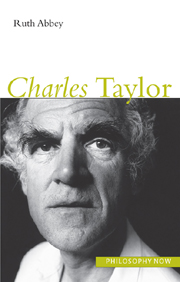4 - Understanding knowledge
Summary
If it seems irregular to conclude an overview of Taylor's thought with an account of his ideas about epistemology, rather than beginning with this, it is probably related to the primacy of what Taylor calls the epistemological model. The details of this model will be described later in the chapter, but one of its major features is foundationalism: the belief that understanding the nature of knowledge is primary in the philosophical enterprise. Taylor thinks that there is “a terrible and fateful illusion” in this approach to knowledge. As he says in the Preface to Philosophical Arguments:
These are the assumptions Descartes gave articulation to; central is the view that we can somehow come to grips with the problem of knowledge, and then later proceed to determine what we can legitimately say about other things: about God, or the world, or human life. From Descartes's standpoint, this seems not only a possible way to proceed, but the only defensible way. Because, after all, whatever we say about God or the world represents a knowledge claim. So we first ought to be clear about the nature of knowledge, and about what it is to make a defensible claim.
(1995a: vii, original emphasis; cf. 34)But leaving the discussion of epistemology to the end is not intended to suggest that this is the least important aspect of Taylor's thinking either. As we shall see, he does accord primacy to ontology, but also repeatedly reminds us that epistemological concerns are bound up with issues of personhood, morality and so forth.
- Type
- Chapter
- Information
- Charles Taylor , pp. 151 - 194Publisher: Acumen PublishingPrint publication year: 2000

